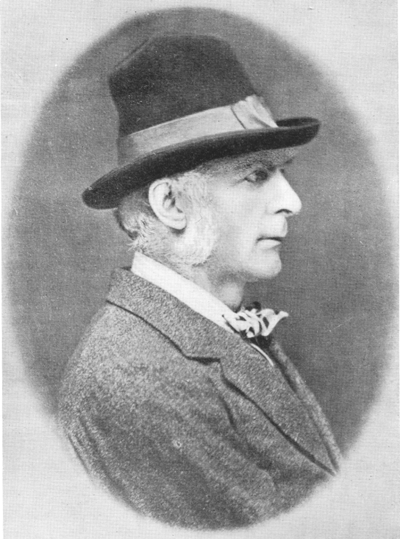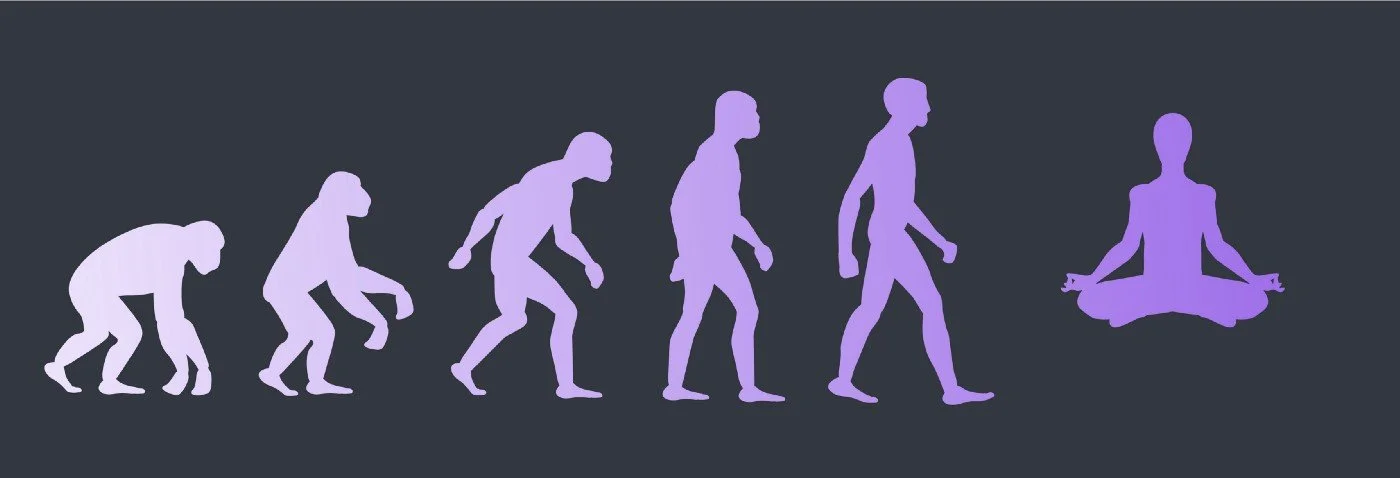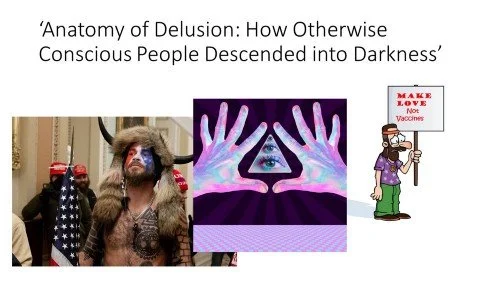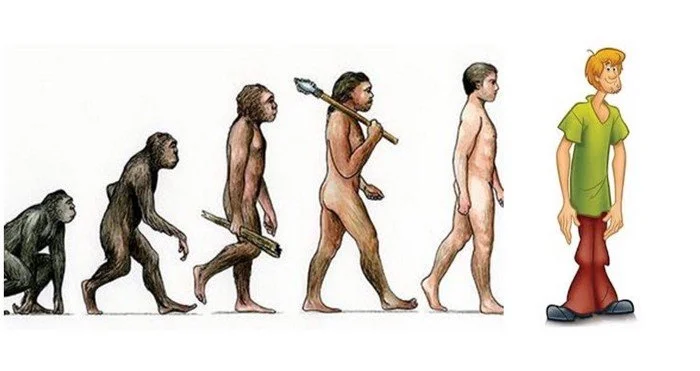In the 1970s, Timothy Leary, high priest of LSD, starting preaching a new gospel. He become obsessed with the idea of a hierarchy of different genetic castes spread throughout the Earth, at different levels of evolution, culminating in a super-caste of Californians destined to leave Earth and continue their evolution in space. He preached selective breeding to enhance intelligence, and even suggested Hitler was ahead of his time in his plan to breed ubermenschen.
Read MoreThis is the text of a talk I gave at Medicine festival in August 2022, summarising research I and others have done in the last three years on conspiracy thinking in New Age spirituality.
I’m going to talk about ‘conspirituality’ — the overlap between new age spirituality and conspiracy thinking, especially during the pandemic
Read MoreThe men of the New Republic will not be squeamish…in facing or inflicting death, because they will have a fuller sense of the possibilities of life than we possess’. HG Wells, Anticipations (1901)
Read MoreIn 1879, in Breslau, a group of idealistic young Germans gathered round an oak tree at midnight to swear an oath. They swore to do everything they could to return the German race to the glories of its Teutonic past, and to found a utopian commune. A young man called Alfred Ploetz, 19, was chosen to be its future president.[1]
Read MoreThis is the latest entry in my Spiritual Eugenics project.
It feels taboo to read Mein Kampf. It is ‘literature’s only unmentionable work’, in Karl Ove Knausgard’s phrase. You download it and think, ‘I must be on some FBI list now’. Nazism still inspires hate-crimes and murders, like the Buffalo shooting. It’s the extreme opposite of modern liberalism — in place of diversity, equality and minority rights, it preaches white supremacy and rule of the strong over the weak.
Read MoreIn previous chapters of the spiritual eugenics project we have ambled down relatively unpopulated lanes of historical research. Now, we emerge onto a daunting autobahn: Nazism. No topic has been more pored over by historians. And there are no more awful events in human history than the Nazis’ programme of mass murder.
Read MoreLast month Fox News presenter Tucker Carlson released a TV series called The End of Men, warning that American men were becoming effete, flabby and sterile. Civilization is descending into chaos, the series suggests, but that’s OK, because ‘hard times produce strong men’.
Read MoreWestern culture urgently needs to improve its cultural resources to help people make sense of ecstatic experiences. Evidence suggests that more and more people in western culture are having and seeking ecstatic experiences, because of the growing popularity of psychedelics and contemplative practices like meditation and yoga. However, we have scant cultural resources for making sense of such experiences.
Read MoreWhat happens when a world leader falls for crackpot philosophy? We’re going to examine a movement known as Cosmism, which appeared in late 19th century Russia and the early Soviet Union. It set itself the grand task of steering evolution to create immortal, cosmic superbeings. We’ll also look at how this fanatic philosophy influenced Putin, and may have helped inspire the Kremlin’s fledgling eugenics programme.
Read MoreThe ‘religion’ of eugenics originated in the UK but Britain never passed a law legalizing involuntary sterilization of those deemed unfit. Instead, the UK exported eugenics around the world via events like the first international eugenics congress of 1912. Countries from Brazil to Japan would introduce eugenic laws, and no country was more aggressive in its eugenic policies than the United States.
Read MoreIn this chapter, we will look at how Julian Huxley and his peers developed the religious creed which he would later call Transhumanism, and how their visions of scientific utopia inspired his brother’s humorous novel, Brave New World.
Read MoreThis is the latest entry in my ‘Spiritual Eugenics’ project, which explores the overlap between New Age spirituality and eugenics. For a definition of these terms, an introduction to the project, and more articles from it, go here.
In the next three articles, we’re going to meet the most important family for this topic — the Huxleys.
Read MorePerson A, one one side of you, says this:
‘Life-outcomes are determined by your social class’.
Person B, on the other side, says this:
‘Life-outcomes are determined by your genes’.
Make a guess as to the politics of Persons A and B.
Read MoreBritish geneticist Adam Rutherford has a new book out, called Control, about the history of eugenics and how it might or might not come back in the 21st century. As regular readers know, I’ve been researching and writing about eugenics myself for the last two years — you’re probably sick of it by now! — so I read Rutherford’s book to learn and review.
Read MoreIn 1883, the same year that Francis Galton coined the word ‘eugenics’, a strange religious text was published, announcing the coming of a new type of human. The grand announcement went completely unnoticed at the time, and yet it would capture the imagination of the world in the coming decades. The book, of course, was Friedrich Nietzsche’s Thus Spake Zarathustra.
Read MoreOn the 18th of January, 1874, a remarkable dinner party took place at the London home of Erasmus Darwin, older brother of naturalist Charles Darwin. The guests included Charles Darwin, the novelist George Eliot, a young classicist named Frederic Myers, and Darwin’s cousin, the statistician Francis Galton.
Read MoreThis is the third entry in the Spiritual Eugenics project.
In 1859, Charles Darwin published On the Origin of Species. It was an epochal moment for western culture. Darwinism challenged the old faith of Christianity, but it also created new faiths, new ‘science-religions’, new mutations of evolutionary ethics, politics and religion.
Read MoreLast week I drove to Sedona, in Arizona, to find out how conspirituality has affected the New Age capital of the United States.
Why did this little town of 10,000 people become such a New Age Mecca? It’s in a gorgeous location, hidden away beneath giant red-rock sandstone protrusions, like alien vessels from an ancient civilization.
Read MoreThe aim of the ‘Spiritual Eugenics’ research project is to explore the overlap between New Age spirituality and eugenics. It will explore how New Age spirituality adapted Darwin’s theory of natural selection into a theory of the ‘spiritual evolution’ of a new species of superbeings, a master-race.
Read MoreBy eugenics I refer to a programme, launched in 1883 by Francis Galton, to improve the genetic quality of human beings, through negative eugenics (preventing those deemed genetically unfit from passing on their genes, either through voluntary or involuntary sterilization, confinement, or extermination) and through positive eugenics (encouraging those deemed genetically fit to pass on their genes more, through breeding with others deemed fit, or through donating their seed to ‘genius sperm banks’).
Read MoreAbove is an interview I did with Stephen Dinan, the CEO of the Shift Network, which is the biggest platform of online wisdom courses, with around three million customers.
Read MoreRick Archer emerged from a troubled youth to become a leading teacher of Transcendental Meditation. 12 years ago, he left TM and started Buddha At The Gas Pump, a podcast where he interviews spiritual teachers. It now has millions of views and downloads. I talked to Rick about how spirituality has changed since he first started meditating in 1968, and how he thinks New Age culture has fared during the COVID pandemic.
Read MoreTwo cheers for the work of Theodore Roszak, a Californian academic who died 10 years ago, and who is one of the more intelligent chroniclers of New Age spirituality. I’ve read four of his books now, and find much to admire in his prose. Encountering his work in New Age culture is like coming across a dapper gentleman in the heart of a steaming jungle.
Read MoreThis is an interview with Eileen Dunn, a life coach who moved to Tulum in October 2020 with her partner Alba, to run a yoga studio. She tells me about her experience of living in Tulum, one of the New Age capitals on the global wellness circuit, during the COVID pandemic.
Read MoreIn the autumn of 2020, in the middle of the pandemic, Dr Emily Grossman and her partner decided to move to Totnes, a small town in Devon that is popular with eco-hippies. Emily looked forward to escaping the Big Smoke and being surrounded by like-minded spiritual activists. A friend encouraged her to join some Totnes online chat groups. It was a rude awakening.
Read MoreDoes it matter if Qanon emerged organically from the infosphere, or if it was synthesized in a lab as a weaponized political meme? I don’t know. I don’t know if we can ever find out exactly who was behind Qanon. When people have posted about it all being a psyop (psychological operation) led by shadowy intelligence agents, it’s sounded like, well, a conspiracy theory.
Read MoreMichael Murphy co-founded Esalen, a cross between an adult education college, a research institute, and an ashram, in 1962. It’s had a huge influence on contemporary spirituality, and was the incubator for everything from ecstatic dance to Authentic Relating to holotropic breathwork. Here, Murphy tells me how he was inspired by his friends, Alan Watts, Gerald Heard and Aldous Huxley, and how Esalen managed to keep going for 53 years, when so many spiritual experiments went very wrong very quickly.
Read MoreHis simple, hopeful message - humanity is waking up and you are a part of this great evolution - made more sense in 1999. What does he have to say to 2019? I went to see him speak in London, to find out.
Read MoreThree friends emerged from a consultation with a celebrity Glasontonbury shaman with remarkably similar predictions for their future. Were their destinies bizarrely intertwined? I went to find out.
Read MoreI'm travelling in Mexico, researching the indigenous culture of magic mushrooms, or hongos as they are called here. Last weekend, I visited Huautla de Jimenez, a town eight hours drive from Mexico City, in the state of Oaxaca.
Read MoreHere is part 2 of my interview with pioneering researcher Milan Scheidegger, who works in the psychedelics lab at University of Zurich. You can read part 1 here. In this half of the interview, we discuss how to translate aspects of indigenous ayahuasca rituals - such as the shaman or sacred plant songs - into the context of western healthcare. We also discuss Milan's plans to establish a psychedelic healing clinic in Switzerland.
Read MoreMilan Scheidegger is one of the most interesting young researchers in psychedelics, because he integrates several different perspectives. He's a clinical psychiatrist at the University of Zurich, who's spent a decade studying the effect of psychedelics on subjects in a laboratory, and on a meditation retreat.
Read MoreA friend emailed me asking about retreats, whether they're useful, and how one goes about picking one.
Read MoreThe last few years I've been attempting to harmonize elements in my psyche - the rational and the ecstatic, or Socrates and Dionysus. I want to approach this idea today through the lens of Jungian psychology, and his idea of the two archetypes of the Puer Aeternus (or Divine Child) and the Senex (or Wise Old Man) - two aspects of the psyche which are superficially antagonistic but which actually need each other.
Read MoreThe documentary maker Adam Curtis wrote in 2010: ‘In Mad Men we watch a group of people who live in a prosperous society that offers happiness and order like never before in history and yet are full of anxiety and unease. They feel there is something more, something beyond. And they feel stuck.’
Read MoreA couple of weeks ago, I wrote a blog-post analysing the video for Blondie’s Rapture, and pointing out the voodoo, occult and mystic symbolism in it. I wondered if Blondie were into that sort of thing, or perhaps I was seeing things. It turned out they were, and one of them - the bassist Gary Lachman - had even become a historian of the occult. He was kind enough to give me his time for an interview.
Read More100 years ago this year, James Joyce published Dubliners, his first book, in which he explored the lives of characters through what he called ‘epiphanies’. He’d been experimenting with epiphanies for some years, and even started to write a ‘book of epiphanies’, which he intended - with customary modesty - to send to every library in the world. You can read some of them here.
Read MoreYesterday we had the first public event in the RSA’s new project: Spirituality, Tools of the Mind and the Social Brain. It’s the child of the RSA’s Jonathan Rowson, who wants to rehabilitate the term ‘spirituality’ and re-connect it to our public conversation. As he noted, there is a large body of people out there who don’t sign up to any one particular religion, but still have a hunger for a spiritual life - including him.
Read MoreLast weekend I had a glimpse of the future. I spoke at a New Age festival in Holland, a country where just 39% of people belong to a religion. According to the British Social Attitudes Survey released this week, that’s where we’re heading too. Thirty years ago, 68% of Brits said they belonged to a religion. Now it’s just 52%, of which less than half are Anglican. We are about to become a post-religious society. So what does that look like?
Read MoreAt the moment I'm researching the cultural practices of ecstasy in the 20th century, which has given me the excuse to read some fine books on the history of pop music. The latest is Matthew Collin’s Altered State: The Story of Ecstasy Culture and Acid House, first published way back in 1997 and since updated. It's a bravura piece of historical journalism.
Read More










































